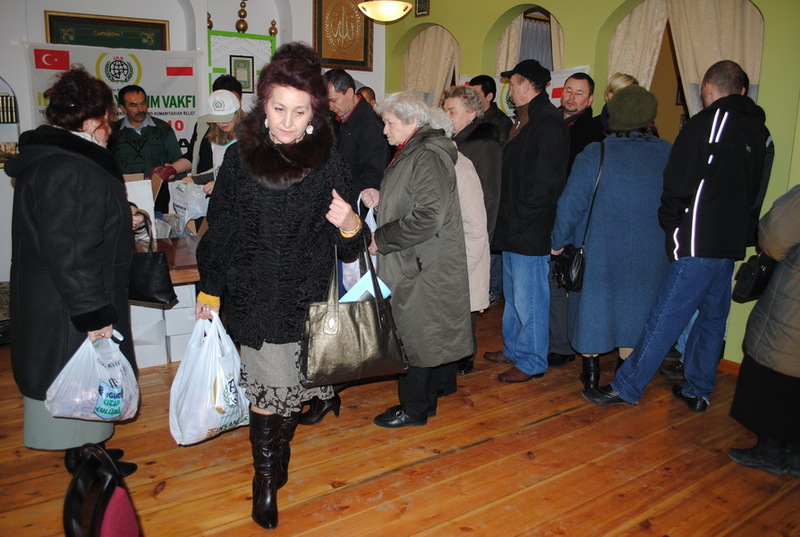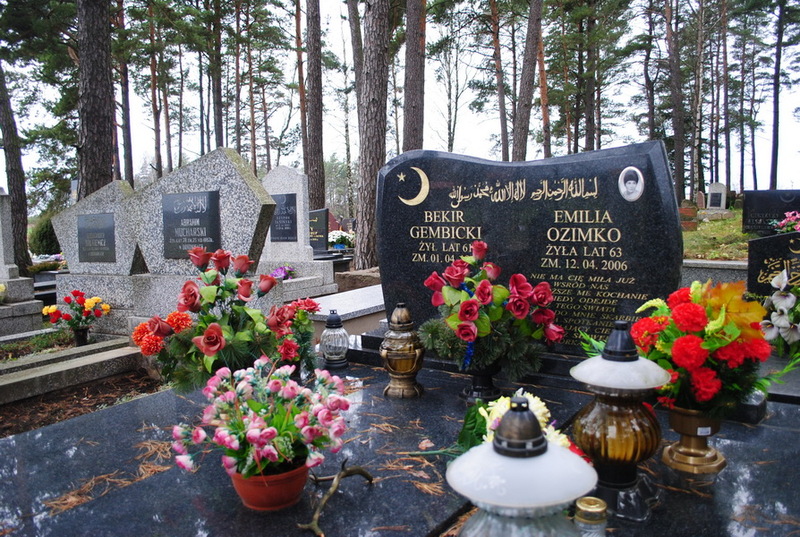Osman Atalay
Muslims live in Bohoniki, Kruszyniany, Bialystok, Warsaw, Gdansk and Gorzov Wielkopolski regions. Through the organizations they established such as Poland Islamic Religious Unity, Polish Muslims Union, Islamic Culture and Muslim Community for Tabligh, Warsaw Islamic Center, Bialystok Islamic Center, Muslims are trying to protect their beliefs and cultures.
Muslim representatives of the country are Tatars
Tatar Muslims who immigrated to Poland from Lithuania in the 14th century have been trying to preserve their religion and culture for centuries. Tatars, who are among the fundamental groups in Poland, continue their lives in Bialystok, which is close to Lithuania, and Bohoniki and Kruszynian villages in Bialystok.
The Tatar Muslims with whom we had the opportunity to meet on the occasion of the Eid al-Adha experience the joy of the coming together. The fact that they could come together only at Eid times and it is always the elderly who come together makes their joy bitter.
The fact that Tatars’ relationships with Muslim brothers and sisters in Muslim countries are weak and that the young population is distant to their religion, traditions and culture concerns the elderly Tatars for the following generations.

Eid al-Adha
We head to Bialystok Islamic Union Center to hold the Eid prayer. The entrance floor of the two-storey building was designed as a masjid. Starting from the early hours of the morning, mostly middle-aged women and men begin to come to the masjid with plastic bags in their hands. They offer each other candies, chocolates and cakes they have brought from their homes. Then, we listen to the Eid sermon delivered by the imam. Hymns are recited following the sermon and then we hold the Eid prayer altogether. And then we wish a “Happy Eid” to each other. Everyone chats with each other and fulfill their longing. Tatars who live in different villages and cities find the opportunity to chat. It seems that they do not frequently come together. The fact that they are living in different parts of the country plays a role in their gathering rarely.
“If only the youth would be here, too…”
We see that the Eid al-Adha is a good opportunity to come together for our brothers and sisters who do not regularly meet; however, we see that there are not any young people in this gathering. In our visit to Poland, we regretfully learn that the young children of the Muslims in the country slowly forget their mother tongue and religious traditions. This issue is a cause of big concern for all the Muslims in the country being mainly mufti Tomasz Miskiewicz.
Cemetery visit
Following the Eid prayer, we head to the Bohoniki village with mufti Tomasz for a cemetery visit. The cemetery is clean and well-kept. The old and new graves are together and they were decorated with flowers. There are Ottoman Sultan’s signature and basmala carefully written in Arabic calligraphy on the graves. Although the number of Tatars who made a cemetery visit was not high in number, we saw that some were trying to perpetuate this Eid tradition, visit the cemetery and send prayers to all those buried in the cemetery.
Animals sacrificed, their meat is distributed
Following the cemetery visit, we go to Tykocin region and sacrifice 10 heads of cattle. After the first day of the Eid al-Adha which we spent with animal sacrifices, we distribute some part of the sacrificial meat at the Bialystok Islamic Union Center on the second day of the Eid al-Adha. On the third day, we go to the refugee camp in Bialystok where 300 Chechens are living. We learn that the camp where mostly women and children live is under the control of the Polish state and daily needs of the refugees here are met by the UN and Polish state. We become very happy over seeing that Tatars are very helpful to their Chechen brothers and sisters and care for them.

Problems of the Muslims in the country
During our visit, we try to understand the problems of the Muslims in Poland and think about possible solutions. Muslims’ living in different regions of the country, their having a poor communication among themselves, their having weak relationships with the Islamic world and most importantly their getting gradually assimilated are the main problems of the Muslims living in Poland. In addition to these, their lacking a radio or newspaper or magazine of their own attracts our attention as a shortcoming. Although Islamic centers which have been established in Poland give some hope for the future, it is understood that these centers which continue to exist thanks to donations are not very efficient.
The Muslims in Poland are fine and free, they are treated equally with other citizens. Poland’s economy which has begun to recover following the country’s accession to the EU in 2004 is seen as a chance for the Tatars in the country for it has raised their life standards. They only need moral help in order to protect their religion, language and traditions and transfer them to their children. They also need relevant books, theologians, academic and constant academic support.
Goodbye for now
We are leaving our Tatar Muslim brothers and sisters who have been giving a struggle of existence in Poland for 600 years. We bring their greetings and prayers to Turkey. We hope to meet with them again around fast-breaking tables in Ramadan.